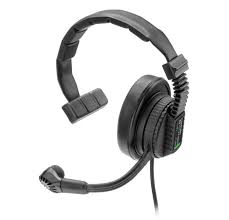Readings:
Jean McNiff – Action Research for Professional Development
McNiff, J. (2020) ‘Action Research for Professional Development’ [electronic resource].
https://www.jeanmcniff.com/ar-booklet.asp
I found this to be a very useful practical guide for how to get started and maintain momentum in action research. AR is such a new topic for me, so I was delighted to read something so accessible. I’m really excited about the idea of self-reflection. Up until now I’ve been a bit ‘all guns blazing’ in the name of improving student experience without stopping to take stock and look at things rationally. Perhaps there just hasn’t been the time. By remembering that AR is a self-reflective process, it will ensure focus on my chosen topic. I have been dreaming about solving particular T&L problems for some time, and I’m looking forward to looking at one particular topic in a holistic way, making sure it has the capacity to be developed over time.
Jones et al – Documenting classroom life: how can I write about what I am seeing?
Jones, L., Holmes, R., McRae, C., and Maclure, M. (2010) Documenting classroom life: how can I write about what I am seeing? Qualitative Research, 10:4, pp. 479-491 https://journals-sagepubcom.arts.idm.oclc.org/doi/pdf/10.1177/1468794110366814
This was an interesting reading into observation in the classroom, and how observations can be curated and managed. I am intrigued by any hidden bias that may be brought with into the observation task, regardless of how neutral we aim to be. The group conversation I had with my colleagues in the session talked about the written vs oral tradition in note taking and storytelling, and how by writing up words from the oral tradition we are formalising events and stories. Perhaps there is space for some things to remain oral, although I’m not entirely sure how in a research context.
What matters to the observer, and what are they looking for? What is tacit knowledge and where is the attention going?
One things’s for sure, and that is that I’m going to have to get better at being a neutral but keen observer.
July 2021 Ideas presentation




Thoughts post workshop:
The topics within my original plan of action research were far too wide, and on Frederico’s advice I have narrowed it down. It does neatly form a continuation from my work in the curriculum design unit, progressing into action research. I plan to narrow down my field of research, but continue to use play as a method of research. [I’ve been really inspired by Monica Vilhauer’s text on Understanding Art: The Play of Work and Spectator (Vilhauer, Monica. (2018) Gadamer’s Ethics of Play: Hermeneutics and the Other, Lexington Books) as play forms such a centralised role in how I plan for experiential teaching and learning activities. Who is spectating, and who is playing – who and how are we learning? I’m learning constantly from students and what they feel is important to them. My aim is to keep students ‘playing’ and participating and retaining muscle memory in technical skills, adapting my teaching and learning activities].
My curriculum design unit was all about ‘formalising the informal’, forming timetabled technical teaching sessions that focused on practical processes and skills building. The plan aims to empower students by asking them to devise content in order to bring their stories and voices to the foreground. By continuing the plan into action research, I hope to use these practical performance making sessions into creating tangible evidence of technical skill retention, by way of signing off witnessed skills in a skills ‘flying hours’ logbook. This is all working towards employability, and I hope to approach industry to research as to whether this would be a useful method of skills assessment for potential staff.
Session concept mapping

This was such a useful way to work through what my problem context is, and how I intend to investigate it. Key things leapt out such as ‘community of practice’, ‘confidence building’, and ‘experiential learning’. I have always been a ‘safe space’ where students are able to talk freely because I do not assess work. Would formalising the informal by introducing technical (informal) assessment be rewarding for students, or a removal of the sense of my neutral safe space?
